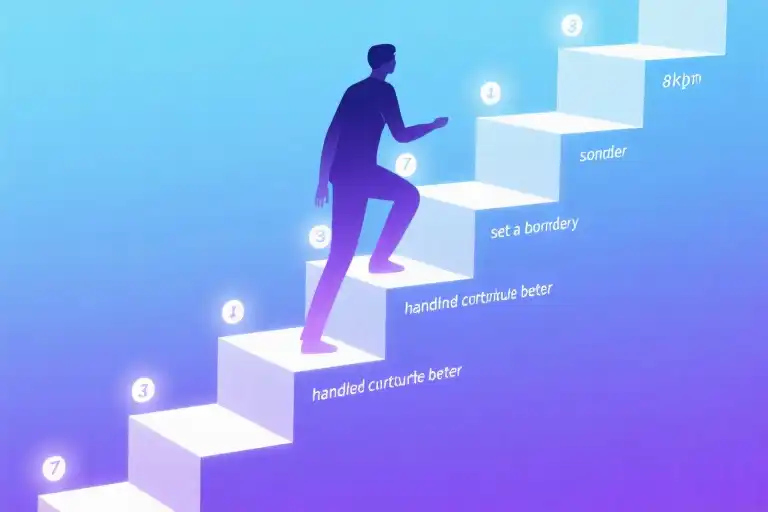The alarm clock rings at 7 AM sharp—just like it did yesterday, and the day before that. You drag yourself to another lecture hall, half-listening to a professor drone on about specialized theories that feel increasingly disconnected from the messy, vibrant world outside. That nagging thought returns: What if the degree I chose at 18 isn’t the life I want at 25?
Here’s the uncomfortable truth no one told us in high school: 65% of college graduates wish they’d chosen different majors (Gallup, 2021). We were sold the myth that early specialization equals success—pick a lane in adolescence and stay there until retirement. Yet the most fascinating people you’ll meet are those who refused this script: the engineer-turned-chef, the doctor writing sci-fi novels, the programmer studying ancient philosophy.
“Specialization was the 20th-century solution—but the future belongs to generalists.”
This isn’t just feel-good rebellion. Neuroscience confirms our brains aren’t fully developed until our mid-20s—why do we expect teenagers to make irreversible career decisions? The job market agrees: LinkedIn data shows professionals change roles every 2-3 years, and 85% of 2030’s most lucrative jobs don’t exist today. That hyper-specific degree might be obsolete before you pay off student loans.
Three signs you’re meant to be a deep generalist:
- You collect hobbies like others collect Netflix shows
- “What’s your passion?” feels like being asked to pick a favorite star
- You spot unexpected connections between unrelated fields
Society calls this “indecisiveness.” History calls it polymathic genius. From Da Vinci’s art-and-anatomy notebooks to Elon Musk’s physics-to-finance leaps, breakthrough innovators share one trait: they refused specialization’s cage. Nature proves this daily—ecosystems thrive on biodiversity, not monocrops. Your mind works the same way.
The most dangerous lie we’ve been told? That diverging from the “job-spouse-mortgage” template means failure. But consider:
- The average millionaire has 7 income streams (IRS data)
- TED speakers are 3x more likely to have cross-domain expertise
- “Useless” side hobbies predict career resilience (Harvard study)
So breathe deep, multipotentialite. That restlessness isn’t a flaw—it’s your evolutionary edge in a world where AI outperforms specialists daily. The question isn’t whether to explore, but how to do it strategically. (Spoiler: We’ll cover that in Chapter 3.)
Reflection prompt: What childhood interest did you abandon because it “wasn’t practical”? How might revisiting it change your path?
The Specialization Trap: How Industrial-Era Education Fails Us
Our education system wasn’t designed for human flourishing—it was built to feed the factories of the Industrial Revolution. When you trace the roots of modern schooling, you’ll find an uncomfortable truth: the 8-hour classroom day mirrors the 8-hour factory shift, and standardized testing resembles quality control checks on an assembly line. This system excels at producing interchangeable parts, not original thinkers.
Three Irrefutable Flaws in Hyper-Specialization
- The Obsolescence Time Bomb
The half-life of professional skills has shrunk to about 5 years (IBM research), yet most degree programs still teach 20th-century paradigms. While you’re mastering outdated software in college, the industry has already moved through three generations of new technology. - Cognitive Tunnel Vision
Neuroscience reveals that excessive specialization literally rewires brains to reject unfamiliar concepts—a phenomenon called ‘cognitive entrenchment.’ It’s why many experts struggle with paradigm shifts in their own fields. - The Passion Paradox
A Cambridge University study found that 72% of professionals discover their true interests outside their chosen majors. By forcing early specialization, we institutionalize future regret.
Is Your Thinking Trapped? (Self-Assessment)
- Do you dismiss ideas outside your field as “irrelevant”?
- When learning something new, do you instinctively seek its “practical application” rather than intrinsic value?
- Have you ever stopped pursuing an interest because it “wouldn’t look good on a resume”?
If you answered yes, your mindset may be suffering from what education critic Sir Ken Robinson called “the death of divergent thinking.” The good news? Neuroplasticity means we can rewire these patterns at any age.
“The factory-model education treats curiosity as an assembly line defect to be corrected.” — Seth Godin
The Hidden Curriculum of Conformity
Beyond explicit lessons, traditional education teaches subtle but powerful meta-lessons:
- Risk aversion: Grading systems punish creative deviations from expected answers
- Delayed gratification: Condition students to exchange present curiosity for future rewards
- Hierarchical thinking: Implicitly teaches that knowledge comes from authorities, not exploration
These mental models explain why so many gifted individuals struggle when faced with real-world problems that don’t come with textbooks or answer keys. The system didn’t just teach you what to think—it taught you how to think, and more dangerously, what not to think about.
Breaking the Specialization Spell
Start counteracting these effects today with these mindset shifts:
- Reframe ‘wasted time’: That philosophy elective you took before switching to engineering? It’s developing first-principles thinking that AI can’t replicate.
- Seek conceptual bridges: Notice how musical rhythm mirrors coding syntax, or how biological ecosystems model resilient organizations.
- Practice intellectual disobedience: Regularly challenge your own most cherished professional assumptions.
The most innovative solutions emerge at the intersections, not the centers, of disciplines. Your polymath tendencies aren’t a liability—they’re your evolutionary advantage in an age where ChatGPT can out-specialize any human.
The Evolutionary Edge of Deep Generalists
Nature never bets on a single strategy. Look at the octopus—a master of camouflage, problem-solving, and tool use all at once. Or crows, crafting hooks from twigs while remembering hundreds of hiding spots. These aren’t specialists; they’re nature’s original deep generalists, thriving through adaptability.
Why Generalists Outlast Specialists
In rapidly changing environments, hyperspecialization becomes a liability. Consider:
- The Koala Problem: Evolved to eat only eucalyptus leaves, they starve when trees disappear
- Human Advantage: Our brains developed general intelligence to survive ice ages, droughts, and migrations
A 2026 World Economic Forum report predicts the top workforce skills will all require generalist capacities:
- Analytical thinking
- Creative problem-solving
- Multidisciplinary collaboration
Your Biological Blueprint
Neuroplasticity research confirms what polymaths like Da Vinci knew—your brain thrives on variety:
- Learning unrelated skills creates denser neural connections
- Cross-training mental “muscles” (e.g. music + math) boosts overall cognition
- Knowledge migration (applying philosophy to coding) sparks breakthrough innovations
Interactive: Map Your Knowledge Ecosystem
graph TD
A[Your Core Skill] --> B[Adjacent Field]
A --> C[Seemingly Unrelated Interest]
B --> D[Unique Combination]
C --> DTry connecting three unrelated skills you possess—this intersection is where your competitive advantage lives.
The Modern Renaissance Mind
Historical generalists didn’t just dabble; they practiced deep cross-pollination:
- Ben Franklin scheduled daily time for “useful knowledge” across sciences, arts, and civic life
- Hedy Lamarr combined acting with inventing frequency-hopping technology (now used in WiFi)
Today’s equivalents include:
- The biochemist using protein-folding principles to solve supply chain logistics
- The poet-developer creating AI that writes emotionally resonant code comments
This isn’t about being a jack-of-all-trades—it’s about becoming a master of integration. When society asks “What do you want to specialize in?” perhaps the real question is “How many fascinating connections can you make?”
Building Your Generalist Operating System
So you’ve decided to embrace your multipotentialite nature and become a deep generalist. Congratulations – you’re about to embark on one of the most intellectually rewarding journeys imaginable. But here’s the reality check: without a proper framework, your curiosity can become a liability rather than an asset. The difference between a scattered dabbler and a powerful generalist lies in having what I call a “Generalist OS” – your personal operating system for meaningful exploration.
The Three-Phase Development Model
Every successful generalist I’ve studied moves through three natural phases of development:
- The Exploration Phase
- This is your permission slip to follow every shiny object that catches your attention
- Key mindset: “What fascinates me about this?” rather than “How is this useful?”
- Pro tip: Set a weekly 3-hour “Strange Exploration Block” (more on this later)
- The Grafting Phase
- Where you start connecting dots between seemingly unrelated domains
- Example: How learning pottery improves your coding skills through 3D spatial reasoning
- Warning sign to watch for: Getting stuck in perpetual exploration (we’ll cover fixes)
- The Integration Phase
- When your diverse skills combine into unique value propositions
- The sweet spot where “I study everything” becomes “I create things no specialist could”
Your Generalist Toolkit
1. The 3-Hour Strange Exploration Block
Every Sunday evening, I protect three sacred hours to explore something completely outside my usual domains. Last week it was Byzantine naval warfare. The week before, molecular gastronomy techniques. The rules are simple:
- No practical justification needed
- Follow whatever tangents excite you
- Document one “Aha!” connection to your existing knowledge
This practice builds what neuroscientists call “cognitive flexibility” – your brain’s ability to switch between thinking modes. Studies show just 20 hours of deliberate dabbling in a new field creates lasting neural plasticity benefits.
2. The Knowledge Migration Journal
Generalists thrive on cross-pollination. Keep a digital or physical journal with these sections:
- Unexpected Parallels: Where you spot similar patterns in different fields (e.g., how chess strategies mirror negotiation tactics)
- Skill Transplants: Concrete ways to apply Technique A from Domain X to Domain Y
- Strange Combinations: Your personal “What if we merged…” ideas (my favorite: applying stand-up comedy timing to business presentations)
Review this monthly – you’ll start seeing your unique intellectual fingerprint emerge.
3. Avoiding the Jack-of-All-Traps
Three warning signs you’re becoming a dilettante rather than a deep generalist:
- The Wikipedia Surface Scratch – Knowing just enough to sound informed at parties but not enough to create value
- Fix: Pick 1-2 exploration areas to go beyond beginner level each quarter
- The Perpetual Student Syndrome – Collecting courses/certificates without application
- Fix: For every learning hour, spend half that time creating something with the knowledge
- The Context Collapse – Losing your core identity amid diverse interests
- Fix: Maintain 1-2 “home base” skills you continually return to and deepen
Making It Practical
Here’s a sample week from my own Generalist OS:
- Monday/Wednesday: Deep work in primary expertise areas
- Tuesday/Thursday: Cross-training sessions (e.g., studying architecture principles to inform UI design work)
- Friday: “Bridge building” – explicitly looking for connections between domains
- Sunday: Strange Exploration Block
The magic happens in the intersections. When I combined:
- My background in cognitive psychology
- Random exploration of bartending techniques
- Ongoing interest in negotiation strategies
…I developed a completely new approach to facilitating business meetings that became my signature offering.
Remember: The world doesn’t need more people who know a little about everything. It needs people who can synthesize everything into something new. That’s the deep generalist’s superpower – and your Generalist OS is how you’ll develop it.
Navigating Social Resistance: A Survival Guide for Deep Generalists
You’ve felt it before—that subtle (or not-so-subtle) pressure when you mention studying philosophy alongside coding, or when you explain your fifth career pivot before turning 30. The raised eyebrows from relatives at holiday dinners, the concerned “but how will you make money?” questions from mentors, even the self-doubt that creeps in when comparing yourself to peers with linear career paths. This chapter is your tactical manual for defending your right to be gloriously multidimensional.
Understanding the Pressure Points
Social resistance to generalists stems from three primary sources:
- Parental Anxiety: The generation that raised us lived through economic periods where specialization equaled job security. Their concerns often come from love, not limitation.
- Institutional Inertia: Schools and workplaces are designed for clear labels—”computer science major,” “marketing professional.” Systems resist what they can’t easily categorize.
- Peer Comparison: When friends are hitting traditional milestones (promotions, home ownership), your exploration phase can feel like “falling behind.”
A 2022 LinkedIn study revealed an ironic truth: professionals who made strategic career pivots every 3-5 years ultimately earned 23% more than those who stayed in one field. The system pushing specialization may actually be working against your long-term success.
Your Anti-Specialization Talking Points
Next time someone questions your path, try these evidence-backed responses:
For Financial Concerns:
“Actually, research shows generalists adapt better to economic shifts. When AI automates specialized tasks, my diverse skill set becomes more valuable, not less.”
For Credibility Doubts:
“Steve Jobs famously credited his calligraphy class for Apple’s typography breakthroughs. What seems like a distraction today might become my competitive edge tomorrow.”
For Urgency Pressure:
“Neuroscience shows our brains keep developing into our mid-20s. Locking into one path at 18 would be like finalizing a book outline before doing the research.”
Redefining Success Metrics
Traditional milestones won’t capture your growth as a deep generalist. Create your own:
- Knowledge Connections: Track when you spot cross-disciplinary patterns (e.g., noticing how game theory applies to your poetry writing)
- Skill Stacking: Celebrate when two previously separate abilities merge into something new (coding + psychology = UX design)
- Adaptability Wins: Note times when diverse experiences helped you solve problems others couldn’t
Keep a “Multi-Potentiality Journal” where you document these moments. Review it whenever self-doubt strikes—you’ll see patterns of progress invisible to outsiders.
The Art of Strategic Compromise
Sometimes, temporary specialization creates space for future exploration:
- Use a “80/20 Rule”: Dedicate 80% of your time to income-generating skills (even if narrow), preserving 20% for experimental learning
- Frame generalist pursuits as “professional development” (e.g., “Studying art history improves my data visualization skills”)
- Build “bridge skills” that connect fields (statistics, writing, design thinking)
Remember: Resistance often peaks during transitions. As your unconventional path yields results—whether creative projects, unexpected job opportunities, or simply greater life satisfaction—the skeptics will become your loudest supporters. Until then, let your curiosity be the compass others eventually learn to trust.
The New Renaissance: Profiles of Modern-Day Polymaths
From Lab Coats to Literary Fame: The Biologist-Turned-Sci-Fi Author
Dr. Elena Rodriguez never planned to become a Hugo Award-winning novelist. For twelve years, she conducted groundbreaking research on extremophile bacteria in Yellowstone’s hot springs. Then, during a sabbatical, she began writing speculative fiction about microbial civilizations – stories where her scientific expertise danced with mythological themes.
“What seemed like divergent interests actually fed each other,” she explains. “Understanding how organisms adapt to extreme environments helped me create believable alien ecologies. My microbiology training gave me the discipline for daily writing.” Her novel Symbiosis later incorporated actual quorum sensing mechanisms into an interstellar diplomacy plot.
Key Takeaway: Deep specialization can become springboard for跨界 innovation when combined with exploratory curiosity.
When Code Meets: The Philosophy Podcast That Broke the Internet
Mark Chen’s journey defies all career advice. After dropping out of a computer science PhD program, the self-taught programmer built a following by live-coding while discussing existentialism. His Byte-Sized Wisdom podcast now teaches over 1.2 million subscribers how Nietzschean concepts apply to algorithm design.
“Specialization creates blind spots,” Chen observes. “The most elegant solutions often come from outside a field’s established paradigms.” His viral episode comparing object-oriented programming to Aristotelian categories demonstrates how mental models transfer across domains.
Pattern Recognition: Combining technical skills with humanities perspectives creates unique intellectual niches.
Historical Blueprints for the Generalist Life
Benjamin Franklin’s Learning Loop
The ultimate American polymath structured his days with intentional variety:
- Morning (5-7am): Focused study of languages and philosophy
- Workday (8am-5pm): Practical application in printing/science/diplomacy
- Evening (6-9pm): Social knowledge exchange through clubs and correspondence
Franklin’s Autobiography reveals his deliberate practice of “connecting different arts and sciences” – a method now validated by modern research on cognitive diversity.
Marie Curie’s Interdisciplinary Mastery
While famous for her physics Nobel Prize, Curie simultaneously:
- Developed mobile X-ray units during WWI (applied engineering)
- Established radioactivity standards (measurement science)
- Designed the Radium Institute’s educational programs (pedagogy)
Her notebooks show meticulous records alternating between quantum theory calculations and chemistry experiment sketches – proof that depth and breadth aren’t mutually exclusive.
Lesson: Groundbreaking work often happens at disciplinary intersections.
The Polymath Playbook: 3 Transferable Strategies
- The Adjacency Principle
- Identify skills/knowledge one step removed from your core expertise
- Example: A graphic designer studying cognitive psychology to improve UX
- Conceptual Bridges
- Create metaphors linking disparate fields
- Example: “Protein folding is like origami with chemical attractions”
- Knowledge Journals
- Maintain dated notes showing connections between interests
- Pro Tip: Use color-coding by discipline (blue=science, green=arts, etc.)
“The most exciting breakthroughs happen when someone carries a concept across what others assumed was an impassable boundary.”
— Historian of science James Burke
Your Turn: Cultivating Your Renaissance Mind
Self-Assessment Exercise
Map your current interests using this framework:
[Core Skill 1]
↙ ↘
[Related Field A] [Related Field B]
↘ ↙
[Innovation Zone]Starter Projects
- Weekly Curiosity Hour: Dedicate 60 minutes to exploring an unrelated field
- Disciplinary Mashup: Combine two interests into a small creative project
- Reverse Mentorship: Trade skills with someone from a different background
Remember: Every specialist was once a generalist who hadn’t yet narrowed their focus. The depth comes not from limiting your scope, but from following the connective threads between your passions.
Will You Follow the Script or Write Your Own Story?
Standing at this crossroads, you hold two maps in your hands. One is neatly printed with predetermined routes—college, career, mortgage, retirement. The other is blank parchment waiting for your unique cartography. The question isn’t about which path is easier (we both know the system rewards compliance), but which version of yourself deserves to exist.
Your Renaissance Toolkit
For those choosing the road less standardized, here’s your survival kit:
1. The Deep Generalist’s Reading List
- Range by David Epstein (why generalists triumph in specialized worlds)
- The Polymath by Waqas Ahmed (historical proof of multidisciplinary mastery)
- Anti-Fragile by Nassim Taleb (how to thrive in unpredictable systems)
2. Cross-Pollination Platforms
- Brain Pickings (Maria Popova’s masterpiece of connected thinking)
- Interintellect (salons for multi-passionate minds)
- Oblique Strategies (Brian Eno’s creativity prompts)
3. Rebel Communities
- The Puttyverse (for multipotentialites)
- Renaissance Business (for nonlinear entrepreneurs)
- Local hacker/maker spaces (physical hubs for cross-disciplinary collaboration)
The Final Challenge
Society’s script promises safety but demands your uniqueness as sacrifice. The blank parchment guarantees nothing except the terrifying freedom of self-authorship. Before you choose, consider this:
“The most dangerous thought you can have as a creative person is to believe you know what you’re doing.” — Bret Victor
“Specialization is for insects.” — Robert A. Heinlein





